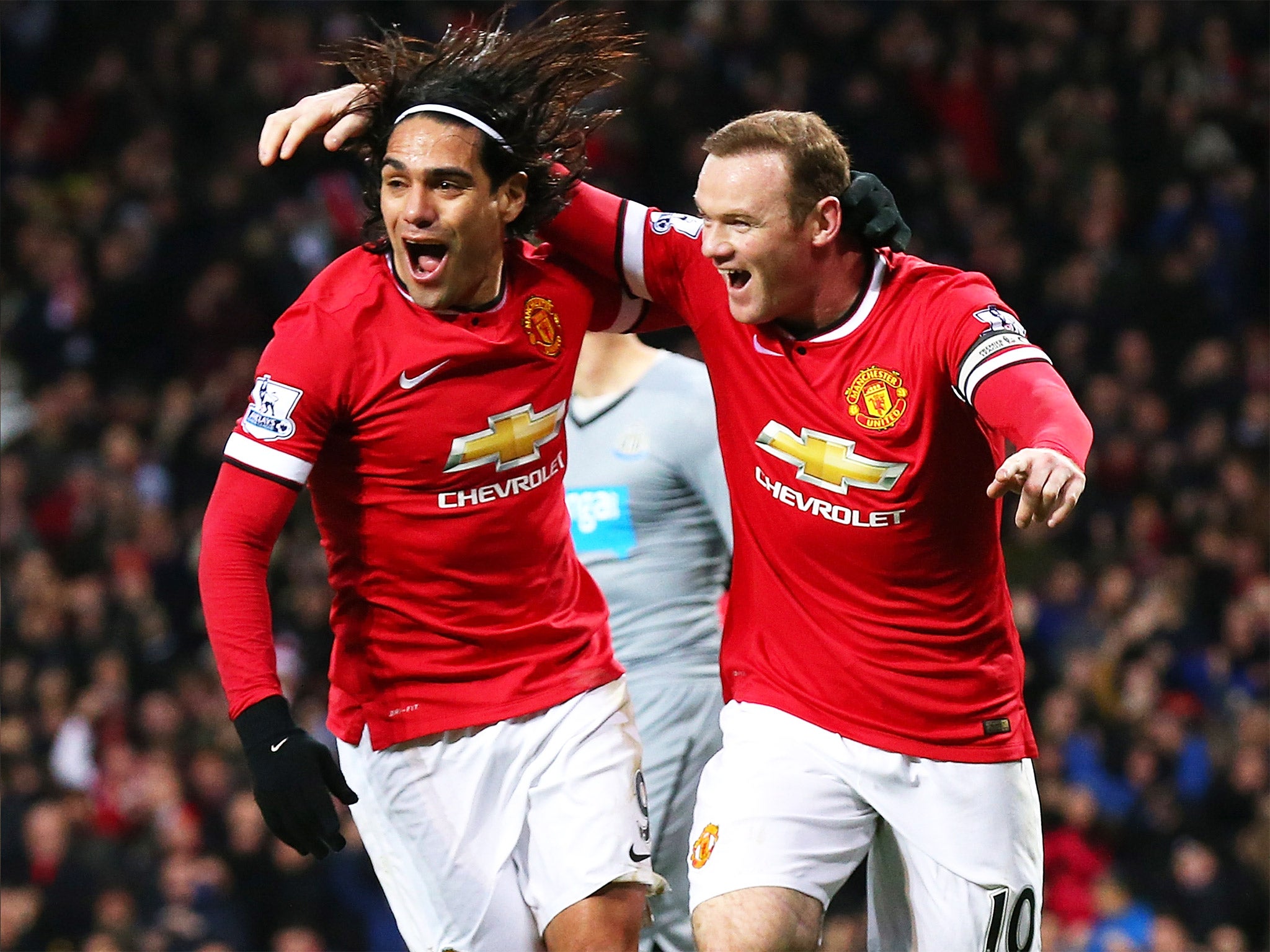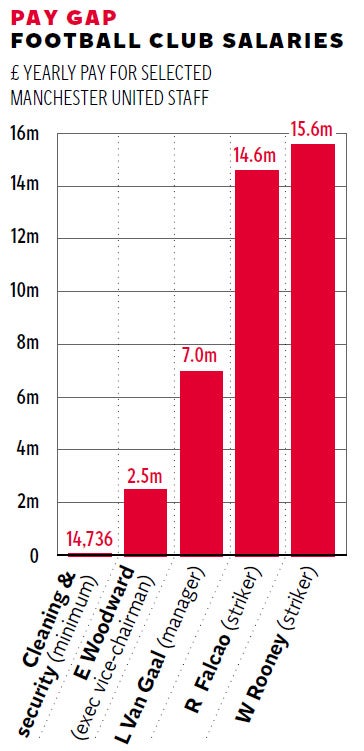Premier League deal: TV billions prompt calls to football clubs to pay Living Wage
Premier League matches are now worth £10m each

Your support helps us to tell the story
From reproductive rights to climate change to Big Tech, The Independent is on the ground when the story is developing. Whether it's investigating the financials of Elon Musk's pro-Trump PAC or producing our latest documentary, 'The A Word', which shines a light on the American women fighting for reproductive rights, we know how important it is to parse out the facts from the messaging.
At such a critical moment in US history, we need reporters on the ground. Your donation allows us to keep sending journalists to speak to both sides of the story.
The Independent is trusted by Americans across the entire political spectrum. And unlike many other quality news outlets, we choose not to lock Americans out of our reporting and analysis with paywalls. We believe quality journalism should be available to everyone, paid for by those who can afford it.
Your support makes all the difference.Campaigners and senior politicians lambasted the Premier League after it rejected calls for clubs to pay above the so-called “living wage” to their staff despite the average £50m windfall that each will receive from the £5.1bn sale of television rights.
Richard Scudamore, the chief executive of the Premier League, was singled out for criticism after he said he was “not uncomfortable” with clubs paying their top stars wages of up to £300,000 a week when staff at the bottom of the same organisations were earning the current legal minimum of £6.50 an hour.
The Living Wage Foundation, which campaigns for companies to pay an enhanced income ensuring a basic standard of living (currently set at £7.85 an hour or £9.15 inside London), called the disparity “obscene” and said it would take a club cleaner or catering worker 13 years to earn what a leading player gets every week.
Managements at Premier League clubs also came under fire after securing a 70 per cent increase in payments by Sky and BT for domestic TV rights over three seasons – valuing each match at £10m and securing a minimum payment to each club of £99m.
Business Secretary Vince Cable led calls for the top sides, who combined earnings were £2.7bn in 2012-13, to pay the living wage. He told The Evening Standard: “There is a lot of money in the sport. You are getting extraordinarily well-paid players. The ordinary fans and ordinary workers around the grounds should expect some of the money to come through to them.”

Chelsea, owned by Russian billionaire Roman Abramovich, is the only one of the Premier League’s 20 clubs to be formally accredited as paying the living wage, meaning it is paid to both direct employees and sub-contracted staff. Manchester City pays the living wage to all direct employees.
Only two other professional clubs in Britain –Heart of Midlothian in the Scottish Premier League and League Two Luton Town – pay the enhanced basic wage. At least one has a record for not even paying the legal minimum. Last summer, an unnamed Premier League club was fined for paying 3,000 staff less than the minimum and was ordered to pay the arrears.
Mr Scudamore, whose organisation does pay the living wage, said clubs were caught in a global market for talent and underlined that money from TV is redistributed to grassroots football. He told BBC Radio 4: “We’re in the entertainment industry. The stars in the Premier League are world stars. I don’t set that market rate and the fans want the best talent.”
He added: “There is a thing called the living wage. There’s also a minimum wage and the politicians have the power to raise it. That’s entirely for the politicians to do, that’s not for us to do.”
The Living Wage Foundation said companies in some of the most hard-pressed industries, including care homes and retail, were paying the increased wage – set at 21 per cent above the legal minimum – yet many workers needed to keep football clubs functioning, from cleaners and caterers to match stewards, were in sub-contracted jobs and likely to be receiving the minimum wage.
Gillian Owen, head of media at Citizens UK, said: “The disparity between those earning so little at the bottom of football and those earning frankly obscene sums at the top is huge.
“These clubs are at the heart of their communities and in many cases do brilliant work in those communities. Yet on the issue of in-work poverty, that affects so many, they do nothing.”
Despite the vast sums in the upper levels of the national game, only a minority of clubs manage to make a profit. Of the 20 Premier League clubs, 12 made a loss in 2012-13, of which five lost £50m or more. Between them the clubs lost £291m.
A spokesman for the league said: “Premier League clubs deliver significant economic benefit to communities, including jobs in areas of high deprivation. Many will be paid the living wage or more, but ultimately that is a decision for individual clubs as employers.”
Join our commenting forum
Join thought-provoking conversations, follow other Independent readers and see their replies
Comments